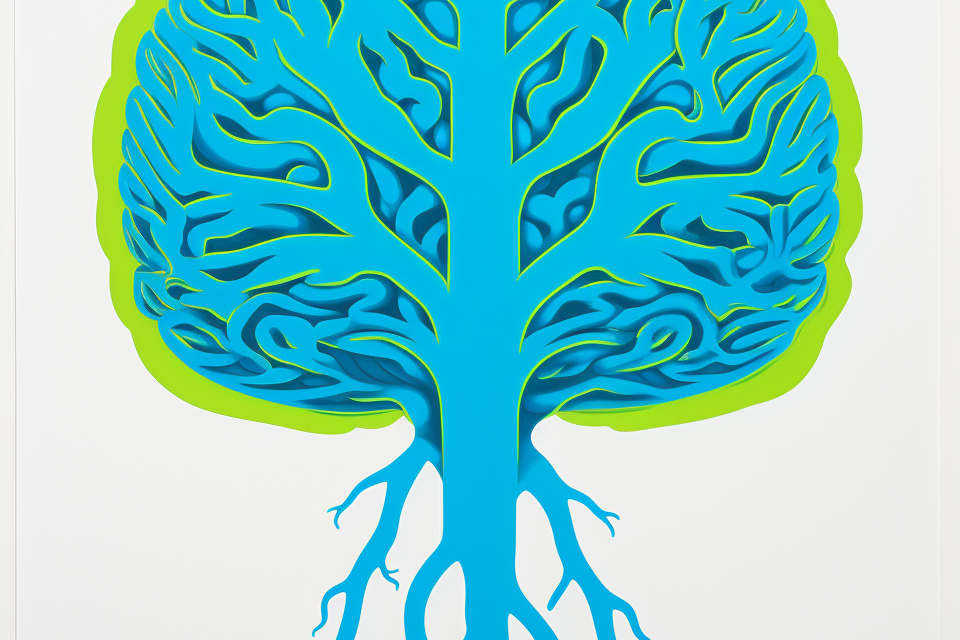Habits and Their Importance in Daily Life

Think of your life as a rich tapestry (a woven artwork) built thread by thread each day. Each thread symbolizes a habit—some are vivid and resilient, adding durability to your life’s tapestry, while others are frail and worn, undermining its integrity.
Habits set the stage for your daily existence, determining both who you are and who you aim to become. Ranging from your morning tooth-brushing ritual to scrolling through your phone at night, these habits often operate in the background, akin to an autopilot steering a plane.
Introducing the ‘Micro Habits’ Concept as a Gateway to Transformation
Here comes “Micro Habits”—those minor actions promising major improvements over time. Picture them as seeds in a fertile garden, each capable of growing into something extraordinary. A micro habit focuses on establishing the perfect conditions for lasting growth rather than seeking immediate results. Because let’s be real, overhauling your entire life at once is not just daunting, but unrealistic. Climbing a mountain doesn’t happen in one giant leap; it unfolds one step at a time.

A Preview of what this post will cover
- Demystifying the Science Behind Habits: We’ll delve into neurological pathways that make micro habits more approachable in your daily life.
- Conventional Approaches vs. Micro Habits: Examine why traditional methods of habit-building often fall short, contrasting them with the flexibility and persistence of micro habits.
- Actionable Insights: Gain tips on incorporating these small yet powerful shifts into your daily flow, supported by case studies and real-world examples.
- Additional Topics: Productivity, financial wisdom, and the psychology of discipline and mindset will also be scrutinized.
- For All Audiences: Whether you’re a young adult seeking direction or an experienced professional looking for nuanced strategies, this post aims to serve as your guide, your handbook, and perhaps even a catalyst for genuine growth.
- Embarking on the Journey: So, pour yourself a cup of your favorite beverage, settle in, and let’s explore the transformative realm of micro habits together.
The Science of Habits and the Role of Micro Habits
As we delve deeper into the realm of micro habits, it’s crucial to establish a scientific foundation. Habit formation goes beyond mere willpower; it’s a nuanced interplay of neural pathways in the brain. Grasping this science not only demystifies how habits come to be but also illuminates why micro habits are so effective.
When discussing habits, we often describe them as “second nature,” suggesting they operate on a sort of autopilot. And indeed, they do. Your brain forms neural pathways that serve as shortcuts for recurring actions. Think of these pathways like well-trodden trails in a forest: the more you traverse them, the more distinct they become. This enables you to navigate these trails without getting lost or needing to blaze a new path each time. In a similar vein, established habits follow these neural ‘tracks,’ making the behavior nearly automatic.
So, how do micro habits weave into this tapestry? Because these behaviors are small and manageable, they enable you to forge new neural connections in your brain without overwhelming it. Instead of hacking through dense forest to create a new trail, you’re taking brief, simple strolls along it. Each excursion makes the path more distinct and easier to navigate, eventually making the activity as automatic as a more ingrained, complex habit over time.
If you’re asking, “This sounds compelling, but is there evidence to back it up?” you’re in good company. Indeed, there is. Numerous studies attest to the efficacy of starting small when it comes to habit formation. Research shows that individuals who begin with manageable goals, such as flossing a single tooth each day, are more likely to maintain consistency over time compared to those who shoot for larger, more complex changes right off the bat. Studies in both behavioral psychology and neuroscience validate that minor adjustments not only help forge new habits but also enhance neural plasticity—your brain’s amazing capacity to rewire itself by forming new neural connections.
Whether you’re a novice or a seasoned expert in the arena of personal development, comprehending the science of habits offers you a distinct edge. It’s akin to a master chef who understands the subtleties of flavor pairings or an elite athlete who knows the biomechanics of their movements. In this context, knowledge isn’t merely power; it’s the key to a life that’s more productive, disciplined, and fulfilling.
The Limitations of Traditional Habit-Building Methods
We’ve all been there: kicked off the year with a list of ambitious objectives, only to find them gathering dust by February. So what gives? Why do our well-intentioned efforts at traditional habit formation often fall flat? To understand this, let’s unpack some common hurdles: setting impractical goals, and a lack of consistent discipline.
When contemplating life changes, we often aim sky-high. While aspirational, this mindset is a double-edged sword. Lofty goals are exhilarating, but can also feel overwhelming. If you aim to jump from zero exercise to running five kilometers a day, the sheer scale of the task becomes daunting. Your brain is wired for comfort, and drastic changes trigger alarms, often leading to procrastination and, eventually, abandonment.
Another challenge is maintaining consistency and discipline. A new habit, no matter its size, demands regular action, which, in turn, requires discipline. Typically, we try to muscle through with sheer willpower. The catch? Willpower is finite. Think of it like a muscle; the more you flex it, the more fatigued it gets. Consequently, while you might start strong, your discipline wanes over time, making it difficult to stick with new behaviors.
This is where the brilliance of micro habits comes into play. Designed to be laughably small, these incremental steps sidestep the brain’s resistance to change, making it easier to maintain consistency.
The Benefits of Micro Habits
What’s the payoff for being consistent? You gain self-control. But this isn’t the punitive discipline of restriction; it’s empowering discipline built on small, daily wins. These micro actions create a cumulative effect over time. Each minor victory boosts your confidence and sense of accomplishment, reinforcing the neural habit loop.
So, if your past is littered with lofty intentions that fizzled out, consider giving micro habits a chance. They could very well be the missing piece in your puzzle, offering an accessible and sustainable path to long-term improvement. Whether you’re a novice on your self-improvement journey or far along the path, micro habits offer a practical, science-backed blueprint for overcoming typical barriers and instigating meaningful, lasting changes in your life.
What Are Micro Habits?
So far, we’ve sung the praises of micro habits, delved into the science that underpins them, and highlighted why traditional methods often come up short. But what exactly are micro habits? Let’s dig deeper to unravel this transformative concept.
At its essence, a micro habit is a minuscule, almost negligible action that’s effortless to perform and acts as a stepping stone toward a larger goal. Guided by two core principles—simplicity and attainability—the aim is to make the task so straightforward that it’s almost reflexive, and so achievable that there’s virtually no excuse not to do it. Want to read more books? A micro habit could be reading just one page before bedtime. Sound too easy? That’s precisely the point.
You might be asking how such seemingly trivial actions can lead to meaningful change. For a moment, consider real-world examples. Ever heard of the Japanese technique of Kaizen? It’s the art of making tiny, incremental improvements to achieve ongoing progress. Toyota harnessed this philosophy to ascend to the pinnacle of automotive manufacturing. Or let’s bring it home: flossing. Flossing all your teeth may feel daunting, but flossing just one? Suddenly it’s manageable, and before long, you’re flossing your entire set daily, almost second nature.
Now, let’s distinguish micro habits from standard habits. Both aim to integrate a repeated action into your life, but they differ significantly in scale and approach. A standard habit might be jogging for 30 minutes each morning, requiring a substantial time and energy commitment. A micro habit could be merely putting on your running shoes as you start your day. You’re only committing to that initial step, not the run itself. This subtle yet impactful difference allows micro habits to essentially coax your brain into taking the first move, raising the odds you’ll follow through on the larger task.
In a nutshell, micro habits aren’t watered-down versions of regular habits; they’re a strategic simplification. They offer a psychologically savvy route to personal growth, making it easier to start, sustain, and ultimately expand into something more substantial over time. Whether you’re a young adult laying the foundation for healthy habits or a seasoned athlete striving to break new ground, integrating micro habits into your strategy could be your next pivotal move.
The Advantages of Micro Habits
By now, you’re likely grasping that micro habits aren’t just another self-help buzzword but a genuine instrument for change. But what makes them enduring, more than just a trending topic? Let’s explore the advantages that elevate micro habits from a momentary trend to a lasting approach.
First off, they’re incredibly easy to set up and sustain. Remember the simplicity principle? Micro habits leverage this by reducing the friction that typically accompanies the adoption of a new habit. The action is so effortless it nearly becomes second nature, leading to remarkable staying power in your habit-forming efforts. Skipping your micro habit feels more like an anomaly than a rupture in the chain, alleviating the guilt that often hinders failed habit attempts—and that, frankly, is half the battle.
Secondly, through the magic of compounding, micro habits can snowball into significant shifts. It’s the same principle that makes early investing a game-changer. Start with just one push-up a day. After a week, make it two, then three, and so on. By the end of the year, you might be cranking out 50 push-ups daily with ease. Because your foundation is robust, each incremental increase feels manageable, a far cry from the grueling leap from zero to fifty.
Lastly, the practice of micro habits hones your focus and discipline. Think about it: adhering to a small daily task requires a degree of mindfulness. You’re making a daily pledge, however modest, to improve yourself. This heightened focus spills into other facets of your life, enhancing your discipline not only in maintaining your micro habit but also in time management, work execution, and social interactions. The discipline fostered by micro habits is empowering, offering you a newfound sense of control and agency over your life.
In summary, micro habits aren’t merely a beginner’s stepping stone; they’re a versatile, enduring tool for anyone committed to personal growth. They’re accessible due to their simplicity, sustainable thanks to their incremental nature, and broadly impactful through their focus-enhancing effects. If you’re seeking a strategy that’s gentle enough to coax you off the starting line yet robust enough to sustain you through life’s marathon, micro habits just might be your golden ticket.
Getting Started with Micro Habits
So you’re on board with the concept of micro habits and can’t wait to dive in. Fantastic! But where do you begin? Let’s walk through the phases that will transform your good intentions into tangible outcomes.
Firstly, you’ll want to pinpoint the ideal micro habit for you. The keyword here is alignment—your chosen micro habit should be directly linked to a larger goal or aspiration. Aspiring to be an avid reader? Start with reading a single page daily. Want to learn guitar? How about dedicating five minutes a day to practice? The aim is to distill your overarching goal into its most actionable nugget. Make it small yet meaningful.
Once you’ve chosen your micro habit, it’s crucial to prime your environment for success. Make it so effortless you can’t say no. If drinking more water is your aim, have a filled water bottle at your workspace. If reading is your focus, keep a book within arm’s reach. The environment often acts as the unsung hero in habit formation; it can either propel you or place invisible roadblocks in your way. So align your surroundings with your goals.
Next up, track and measure your progress. Even though your micro habit is diminutive, tracking still matters. Whether you use an app or opt for the time-tested calendar and marker, having a visual representation of your consistency serves dual purposes: it’s both a record and a motivator. It’s not just about ticking boxes; it’s about creating a feedback loop that enables you to fine-tune your efforts as you progress.
The Power of Micro Habits
When navigating the world of micro habits, don’t hesitate to tweak them when necessary. The ultimate aim is sustained growth, not rigid adherence. If your initial choice is too easy or too challenging, adjust its size or scope. Hit a plateau? Consider pairing your micro habit with another complementary one. For instance, if your micro habit of one push-up each morning has become routine, you might augment it with a single sit-up.
In a nutshell, establishing micro habits is neither an insurmountable task nor a walk in the park. It requires thoughtful selection, careful preparation, diligence in tracking, and flexibility in execution. It’s an evolving process that adapts to life’s ebbs and flows. But get that wheel in motion, and the journey becomes smoother while the destination draws nearer. So take that initial micro step. Your future self will thank you.
Case Studies: Real-Life Examples of Micro Habits in Action
It’s one thing to delve into the theory of micro habits, but seeing them in action? That’s where the real enchantment lies. In this segment, we’ll explore some case studies that reveal how both individuals and large organizations have revolutionized their lives and operations by embracing the potent force of micro habits.
Sarah’s Weight Loss Journey
First up, meet Sarah, a busy parent grappling with weight issues for years. Conventional diets and gym memberships were no match for her hectic life. She adopted a micro habit of performing 10 squats every time she made her morning coffee. Simple, right? The outcome? Sarah not only shed pounds but also cultivated a daily exercise routine, eventually incorporating more varied workouts. Today, she credits her enhanced well-being to that single, yet potent, micro habit.
Tim’s Authorship Success
Then there’s Tim, an aspiring author bogged down by the daunting task of writing a book. His micro habit? Penning just 50 words per day. It may seem trivial, but the consistency of writing daily mattered more than the volume. Tim completed his manuscript in under a year, turning what seemed insurmountable into something entirely achievable, all thanks to his micro habit.
Micro Habits in the Workplace
But it’s not just individuals reaping the benefits; companies are jumping on the micro habit bandwagon too. Consider a top-tier tech firm that nudged its employees to spend the initial five minutes of each workday organizing their desks. Though it sounds minor, the company observed marked improvements in productivity, stress reduction, and overall morale within weeks. That five-minute habit contributed to an environment of focus and organization that radiated through every project and meeting.
Or think about a manufacturing enterprise that instituted a micro habit of double-checking safety measures, a process that consumed less than two minutes but drastically cut down on accidents and enhanced overall safety scores. Both employee well-being and corporate responsibility soared as a result of this minuscule time investment.
So, here’s your empowering takeaway: Micro habits are versatile enough to adapt to a range of situations and impactful enough to deliver substantial results, whether you’re an individual striving for self-improvement or a business aiming for significant organizational change. These aren’t mere anomalies; they’re evidence of what’s truly possible when you tap into the transformative potential of micro habits. So, how will your story unfold from here?
Boosting Productivity with Micro Habits
Who doesn’t yearn for extra hours in the day? While extending the clock isn’t within our grasp, optimizing the time we have is. This is where micro habits shine, elevating your productivity to levels you might not have thought possible.
The Power of Small Tasks
First off, consider how micro habits are naturally conducive to boosting productivity. Committing to small, manageable tasks minimizes your propensity for procrastination. Plus, they slide effortlessly into your daily routine since they consume so little time. Let’s say you aim to enhance your email responsiveness. Carving out just five minutes each morning to tackle your inbox can streamline your correspondence and alleviate stress. Those five-minute pockets could save you hours of catch-up and anxiety in the long run.
Habit Stacking and Scheduling
You may be asking, “That sounds promising, but how do I actually weave these micro habits into my daily life?” The key is habit stacking. You can layer micro habits onto existing ones to cultivate a more seamless flow throughout your day. Take, for example, flossing right after brushing your teeth. That’s a micro habit built on an already established one. The same principle can apply elsewhere. Just wrapped up a team meeting? Maybe that’s your cue to jot down crucial takeaways and action steps for a few minutes.
And let’s not overlook the role of scheduling. While having a detailed plan for your day is beneficial, a degree of flexibility is equally crucial. The versatility of micro habits allows them to meld seamlessly into any time management method you prefer. Whether you’re into time blocking or the Pomodoro Technique, micro habits can be readily integrated. Even if you’re not one for a stringent schedule, the brevity of micro habits lets them fit snugly into those ‘in-between’ moments—like while your coffee is brewing or during a commercial break.
In summary, if you’re looking to up your game in productivity and time management, don’t discount the potent ripple effect of micro habits. They intertwine with various facets of your daily life and demand minimal upkeep. Over the long haul, these modest acts compound into a lifestyle where you’re not just racing against time, but genuinely making time serve you. Ready to take the leap?
Discipline and Mindset: The Foundations of Micro Habits
Let’s clarify something: micro habits might be small, but they’re far from easy. Like any habit, they require discipline. However, the charm of micro habits is that they prime you for success in a way that makes discipline feel less burdensome and more like a manageable part of your daily life. Because they’re bite-sized, these tasks are easier to sustain, and any productivity aficionado will affirm that consistency is discipline’s cornerstone.
The Power of Small Wins
Picture this: Suppose you want to start meditating but find the idea of sitting silently for 20 minutes daunting. Instead, kick off with a one-minute daily meditation micro habit. Achievable, right? That minute serves not only as a vehicle for mental clarity but also as a daily exercise in discipline. It’s a win-win: you’re both meditating and fostering discipline by committing to a tiny, doable action.
Altering Your Mindset
Now, let’s pivot to mindset. The role of micro habits in molding your thoughts and beliefs is immeasurable. While they help cultivate discipline, they also subtly reframe your perspective on what you’re truly capable of. Consistently nailing small victories alters your mental narrative from “I can’t” to “I can.” This positive shift can ripple across various aspects of your life, transforming self-doubt into self-efficacy.
Ever catch yourself thinking, “I’m just not the type who can maintain a workout routine”? Embarking on a micro habit, like doing five push-ups each morning, can gradually change that perception. Repeatedly achieving this modest goal rewrites your belief system. Over time, you begin to view yourself as someone capable of maintaining a fitness routine, even if it starts out in a modest form.
So, if discipline feels elusive or you’re aiming to alter your mindset, think small to start. Micro habits aren’t just about doing; they’re about becoming. Whether it’s becoming more disciplined, more self-assured, or more attuned to your own capabilities, these seemingly minor actions pack a psychological punch that resonates deeply. Are you prepared to make that tiny, yet transformative, shift?
The Truth About Micro Habits: Myths and Limitations
Let’s dispel some myths. Despite their rising popularity, micro habits are often misunderstood. There’s a prevalent notion that these small changes are a sort of magic bullet—a quick fix to life’s complexities. But let’s get real: if altering your life were that simple, we’d all be Zen masters sporting six-pack abs.
Micro Habits as Tools for Sustainable Change
Micro habits aren’t a shortcut to success; they’re a tool for sustainable change. They ease the anxiety associated with lofty goals, making it more palatable to take consistent action. However, they still demand time, commitment, and yes, discipline—just like any other habit. Think of them as the seeds of transformation, not the fully bloomed flower. They can kickstart a metamorphosis, but they’re not an instant solution.
The Limitations of Micro Habits
Which brings us to the limitations of micro habits. They excel at building new habits or fine-tuning existing ones, but they aren’t the Swiss Army knife for every challenge. For instance, if you’re aiming to quit smoking, reducing by one cigarette per day may not deliver the seismic change you seek. Some issues require more robust, multifaceted solutions. It’s crucial to discern whether a micro habit is the most effective strategy for your particular goal.
So how do we square these myths? By understanding the authentic role and function of micro habits. They act as a springboard for more expansive life adjustments. They’re not a panacea, but when applied thoughtfully, they can be incredibly potent. They work best when integrated into a broader improvement strategy, woven seamlessly into your life’s tapestry.
Acknowledging these misconceptions for what they are allows you to unlock the true potential of micro habits. They’re the minor chords in a symphony of transformation, the small steps that pave the way for bigger leaps. Before you write them off as either too good to be true or too trivial to matter, consider their rightful place in the arena of personal development. Intimidated by the grand scope of your aspirations? Micro habits offer you a place to start, and that’s a magnificent invitation.
Micro Habits and Financial Mastery
Let’s shift our attention to a vital yet often intimidating topic: financial mastery. What if I told you that your journey to financial freedom could start with something as simple as forgoing your daily specialty coffee or automating a $5 weekly transfer to your savings account? Seems almost too trivial, right? Brace yourselves; we’re diving into how such small acts can profoundly impact your financial health.
Consistency and Knowledge: The Pillars of Financial Success
The linchpin of successful budgeting and saving is consistency coupled with knowledge. Many of us dream of amassing a substantial nest egg, but when it comes to action, we falter. This is where micro habits come to the rescue. Instead of trying to stash away a large sum all at once, which can be overwhelming, why not focus on saving a small amount consistently? The act of transferring a modest sum into a savings account regularly ingrains the very habit of saving. The psychology at play here is simple but potent: Achieving smaller goals bolsters your confidence and fuels your desire for larger milestones.
Micro Habits in Investing and Wealth Creation
Now, let’s explore the often-murky waters of investing and wealth creation. Conventional wisdom often paints investing as a complex, high-stakes endeavor best left to the experts. While it’s true that a solid grasp of market dynamics and strategy helps, everyone starts somewhere. Consider automating a small, consistent investment into a diversified index fund or make it a habit to read one investing-related article per week. These micro habits can not only elevate your financial literacy but also incrementally grow your wealth in a less intimidating manner.
In the realm of personal finance, consistency often trumps sheer enthusiasm. Micro habits serve as a steady, unyielding force nudging you toward financial independence. They lay the groundwork for you to scale up your efforts when the time is ripe. So start small. Those minor, regular financial steps could very well pave the way to significant financial freedom. Isn’t that an expedition worth embarking on?
Conclusion: Taking Action with Micro Habits
As we wrap up our deep dive into micro habits, let’s circle back to the core insights we’ve gleaned. We’ve unpacked the science of habit formation, understanding that our brains are naturally inclined to take the path of least resistance. Micro habits offer us a more approachable entry point for forging new, positive neural pathways. They’ve shed light on the limitations of traditional habit-forming methods—overambitious goals, lack of discipline, you name it—and given us realistic, achievable alternatives.
We’ve delved into various aspects of discipline, productivity, time management, and even how micro habits can be a game changer in your financial journey. We’ve covered a broad spectrum, from practical applications to strategies for implementation.
But let this not be the conclusion. Think of this as a clarion call for action. Start small and start now. Begin with two push-ups before your daily shower, a dollar-a-day savings, or five minutes of mindfulness. Bear in mind that a journey of a thousand miles starts with a single step, and in the realm of micro habits, that step can be as minuscule as you need it to be.
Got a micro habit that’s revolutionized your life? Struggling to establish one? The comments section below is your platform to share your thoughts, ask questions, and learn from a community of like-minded individuals. Because in the journey of personal development, collective wisdom often lights the path for the individual.
Integrate these micro-commitments into your daily routine and watch how they accumulate to enact macro-changes. Take the leap and start climbing these heights of personal growth one tiny habit at a time.
Further Reading and Tools
You’re on the cusp of a transformative journey, and if you’re eager for more wisdom, you’re in good company. There’s a wealth of resources at your fingertips to deepen your grasp and application of micro habits.
Further Reading
- “Atomic Habits” by James Clear: A cornerstone read that delves into the science of small habits and their outsized impact.
- Charles Duhigg’s “The Power of Habit”: This illuminating book unravels the habit loop and how to turn it to your advantage.
- Carol S. Dweck’s “Mindset: The New Psychology of Success”: While not directly about habits, understanding mindset is crucial for successful habit formation.
Tracking Tools and Apps
- Habitica: This gamified task manager transforms your tasks and habits into mini-monsters you have to vanquish.
- StickK: This platform uses behavioral economics to nudge you into keeping your commitments.
- Strides: A robust habit-tracking tool that also lets you set specific objectives and milestones.
Online Courses
- Yale University’s “The Science of Well-Being” on Coursera: This course delves into habits as part of a broader investigation into true happiness.
- “Habit Masterclass: The Guide to Good Habit Formation” on Udemy: The title says it all—truly empowering.
- On platforms like MasterClass, expect to find various webinars, often featuring renowned psychologists and life coaches who share their insights on effective habit building.
Your toolkit is ready; now it’s time to select your instruments. In your quest to establish lasting, impactful micro habits, consider these resources both your armor and your artillery. Remember, it’s not just about setting sail; it’s also about being prepared for the journey’s many twists and turns. Happy learning!



